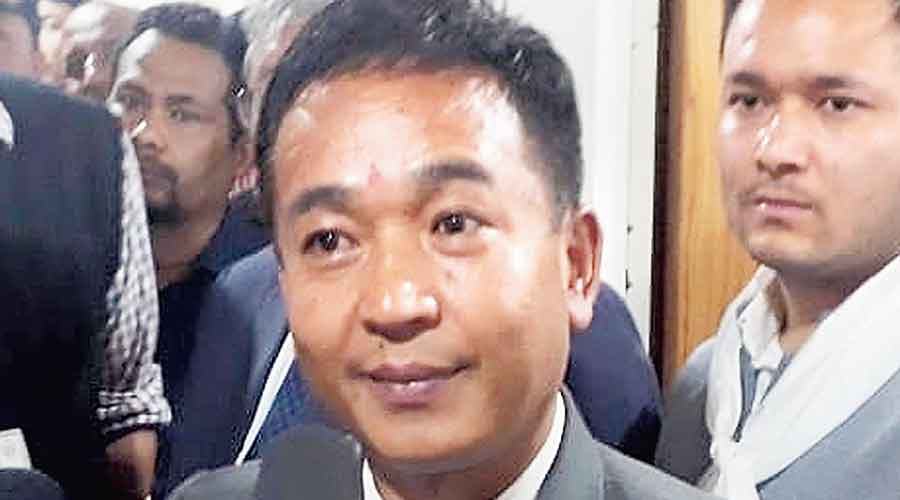Sikkim chief minister P.S. Tamang (Golay) on Tuesday declared August 20 as a state holiday from next year onwards to commemorate the day when the Indian Parliament approved the inclusion of Nepali in the Eighth Schedule of the Constitution, granting it the status of an official language of the country.
Speaking at the concluding function of the five-day celebrations to mark the 81st birth anniversary of former chief minister Nar Bahadur Bhandari at Soreng in West Sikkim, Golay acknowledged the role of his predecessor in securing the official language status for Nepali.
“August 20 is a historical day for us. And we declare from next year onwards, this day will be an official holiday,” he said.
Nepali was included in the Eighth Schedule of the Constitution in August 1992 after decades-long struggle under the banners of different organisations that were primarily based in Darjeeling.
The Nepali-speaking Gorkhas across the country credit Bhandari’s wife, Dil Kumari, who was then a Lok Sabha member as a representative of her husband’s Sikkim Sangram Parishad, for playing an instrumental role in achieving the goal.
Contacted, Dil Kumari sounded a tad sardonic on the declaration of state holiday to commemorate the recognition of Nepali as an official Indian language.
“We only achieved the demand that our language be recognised. There was no thought then about giving us holiday or such like,” she said, adding in the same breath that governments take decisions in their own wisdom.
The two-term Lok Sabha member and former president of the Bharatiya Gorkha Parisangh, a pan-India avowed apolitical organisation, said the struggle for seeking recognition of Nepali as an official language was a collective effort.
“Everybody has contributed towards this. This is not something that is achieved by an individual alone,” she said.










